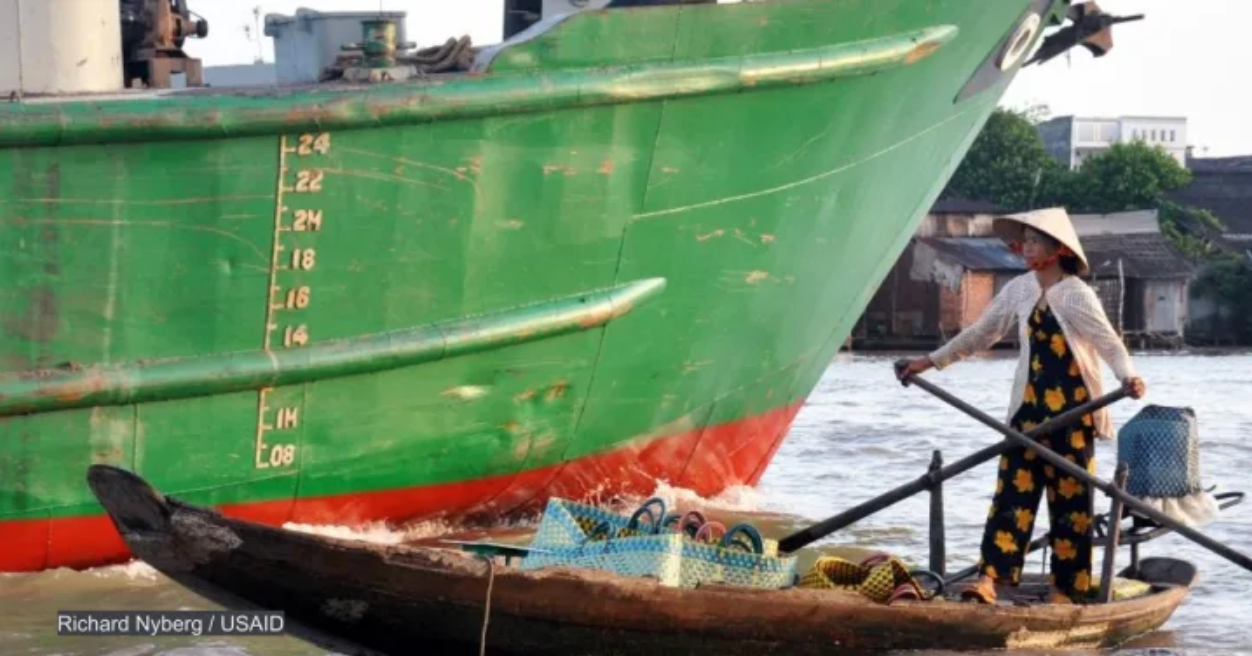Slow-onset climate hazards in Southeast Asia: Enhancing the role of social protection to build resilience

Introduction
Climate change is already having severe impacts on human and natural systems alike. While some of the most widely experienced impacts are sudden onset, extreme events and disasters such as typhoons and floods, many serious climate impacts occur on long time scales – including increasing temperatures, sea-level rise, and desertification. The United Nations Framework Convention on Climate Change (UNFCCC) refers to these processes and other changes that evolve incrementally over several years, or recurring events that become more frequent or intense, as “slow-onset events”.
This SEI report discusses the potential role of social protection mechanisms in building resilience to slow-onset climate change impacts, with a special focus on how social protection can support transformation for resilience-building, adaptation and disaster risk reduction (DRR). Social protection generally aims to help the poorest and most vulnerable members of a society. Mechanisms are also considered a part of climate action and DRR, for instance playing an important role in loss and damage systems and disaster recovery efforts. At the same time, the viability of social protection itself is being jeopardised by climate and disaster risk.
A coherent approach is thus needed to understand the interactions between compounding climate risks, social protection, poverty and inequality. More knowledge is also needed on how different social protection mechanisms can appropriately address different types of hazards with varying time horizons and degrees of risk. Thisreport examines those issues and identifies principles to guide future research on social protection to build resilience to slow-onset events,particularly among at-risk coastal communities.
*Download the full publication from the right-hand column. A summary of the key findings is provided below. See the full report for more details
Methods
This research involved a desk review of both grey and academic literature on the links between social protection and climate-related risks, focusing on slow-onset risks and sea level rise in particular. The brief synthesizes existing knowledge on the use of social protection mechanisms to address risks and vulnerabilities of coastal communities in Southeast Asia. It also highlights the potential of social protection for addressing climate risks; and identified knowledge gaps with regard to slow-onset hazards, urban coastal contexts, and social protection as a means of increasing adaptive and transformative capacity.
Key findings and recommendations
The research finds and recommends the following:
- The adverse effects of climate change, including slow-onset hazards such as sea-level rise, pose significant risks to humans, communities and livelihoods across the globe. Though sudden-onset events such as typhoons draw more attention, slow-onset hazards can have severe long-term impacts on human and natural systems alike.
- Sea-level rise is a particular concern for Asia, where more than 100 million people live in coastal areas. Sea-level rise not only exacerbates storm surge risks, but can also lead to displacement, saltwater intrusion that affects freshwater supplies and agriculture, floods, coastal erosion, and risks to livelihoods, food security and human health.
- Social protection mechanisms have been used for decades to reduce poverty and vulnerability, and they are increasingly used after disasters and in anticipation of climate change impacts. However, their potential for building long-term resilience and supporting adaptation, including to slow-onset hazards, is not being fully utilised.
- Tailoring social protection to slow-onset hazards such as sea-level rise offers a unique opportunity for these measures to be truly transformative. Because these hazards manifest gradually, there is time to drive structural changes that would not be practical in the context of sudden-onset events.
- Several knowledge gaps need to be addressed to inform the effective use of social protection to support adaptation in coastal communities, including when interventions might be most effective in addressing slow-onset hazards; specific needs related to sea-level rise and to urban settings; and how best to realise the transformative potential of social protection in these contexts.
Suggested citation
Anschell, N. and Tran, M. (2020). Slow-onset climate hazards in Southeast Asia: Enhancing the role of social protection to build resilience. SEI report. Stockholm Environment Institute. https://www.sei.org/publications/slow-onset-climate-hazards-southeast-asia-social-protection-resilience/
This report is an output of the programme Critical Challenges of Coastal Southeast Asia (3CSeas). This work has been funded by Sida core support to the Stockholm Environment Institute.
(0) Comments
There is no content